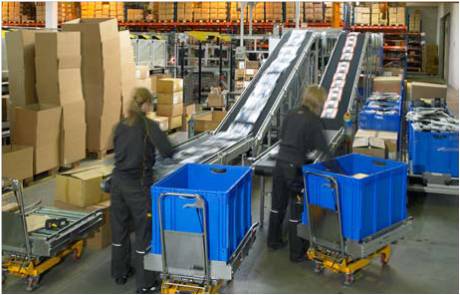Scope
The goal of the TC on Automation in Logistics (TCAL) is to promote automation applications in logistics, production and service systems within the Robotics and Automation society.
The modern logistics and service systems have to face the problems concerning to the planning and control of products, freight and people flows and the related information. The mission of the logistics in manufacturing systems, firms and public organizations producing services is to organize the right resources to the right place at the right time, while optimizing suitable performance measures and satisfying a given set of constraints. Moreover, the increasing complexity of such systems and the availability of Information and Communication Technologies require the development of models and lead to the definition of novel problems with respect to the related literature.

The goal of the TC on Automation in Logistics (TCAL) is to promote automation applications in logistics, production and service systems within the Robotics and Automation society. In particular, the TC will encourage the application of the same theoretical and technological automation approaches in different application fields such automated manufacturing systems, computer networks, transportation systems, healthcare, communication and information processing, allocation and management of technical, human and financial resources.


Topics of Interest
- Artificial intelligence (Machine learning, Deep reinforcement learning)
- Optimization and scheduling
- Resource allocation problems
- Discrete and Hybrid approaches
- Distributed and modular approaches
- Modeling and Simulation
- Decision Support Systems
Applications including (but not limited to) the following:
- Manufacturing and production systems
- Supply Chains
- Warehouses and distribution centres
- Intelligent transportation systems
- Power generation and distribution
- Smart grids
- Smart buildings and Smart cities
- Medical Systems, Healthcare, and Assisted Living
- Telecommunications
- Automated and Internet-based Workflow Management Systems
- automated manufacturing systems
- computer networks
- transportation systems
- healthcare
- communication and information processing
- allocation and management of technical
- human and financial resources


